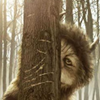Hi all,
Like most of us I'd bet, I have a whole bunch of books, bookmarks and other material that gives you a couple of photos, name and text blurb about many different plants.
What I'm wondering though is, when you find a some plant you've never seen before, how do you actually track down what it's called? It's not like you can google an image (yet) and it seems incredibly slow to just leaf through (pardon the pun) every photo in every book you have hoping to spot it. I had one book that divided plants into categories based on things like size of mature leaves, number of leaves on a stalk etc. Most books don't seem quite so sane.
I'm just wondering how everyone else goes about this? I live in a fabulous area for wild foods, but dandelions and wild leeks are getting old real fast, fiddleheads are passed and wild strawberries / raspberries have yet to kick in.
Is there an online database anywhere that you can search by more than just name and location?






 Reply With Quote
Reply With Quote



 Once again I'd love to hear any suggestions, but the phrase alone is enough to give me a great start on Google / Amazon.
Once again I'd love to hear any suggestions, but the phrase alone is enough to give me a great start on Google / Amazon.  Thanks!
Thanks!


Bookmarks